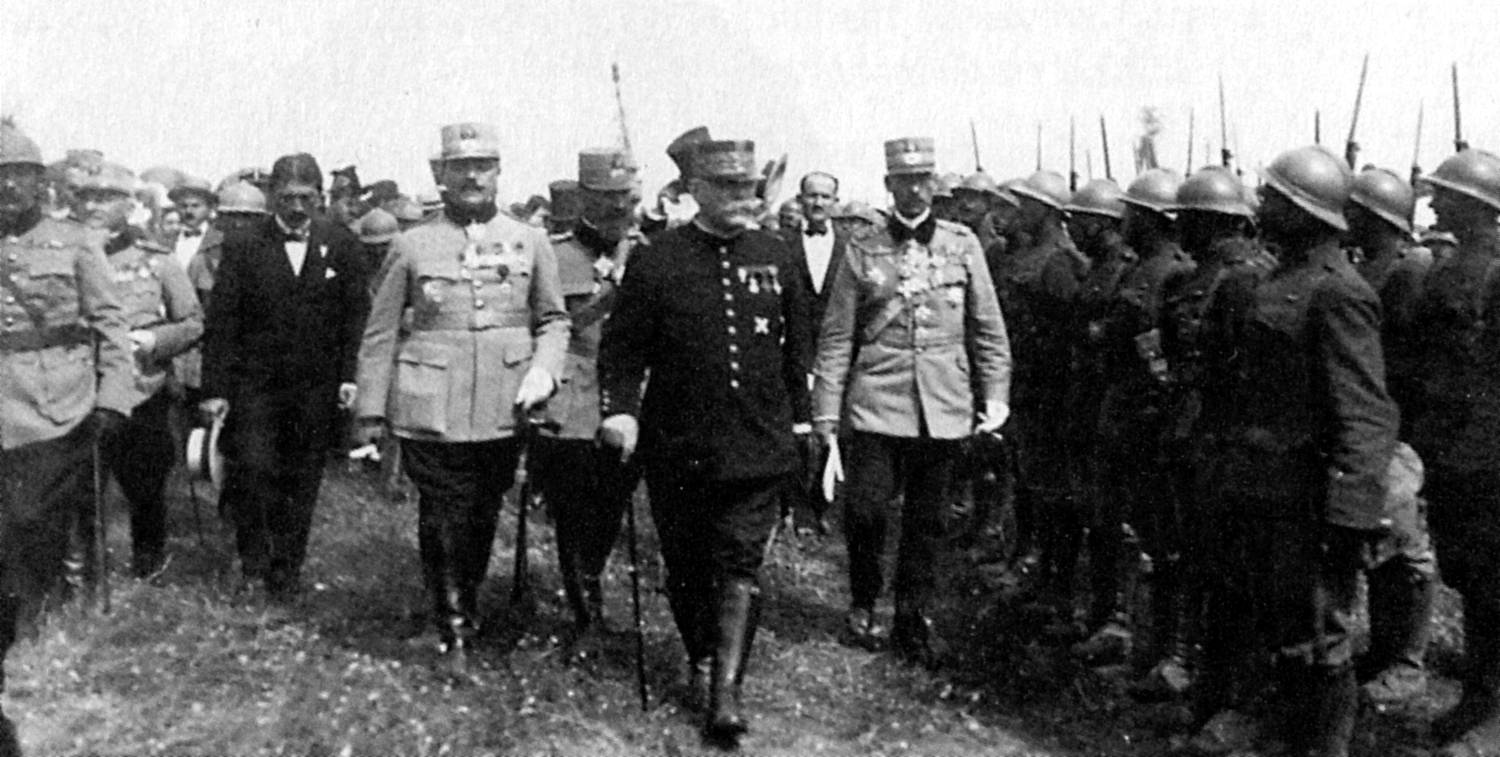French Plan Counter-Strike at River Marne; Parisians Flee City.
Managing the Troubled French-British Alliance.
Special to The Great War Project
(31 August) The Germans on the Eastern Front are now clearing the battlefield after their enormous victory at Tannenberg in East Prussia. In addition to the more than 90,000 Russian prisoners taken, and more than 30,000 wounded prisoners, the Germans also take possession of thousands of horses and hundreds of guns.
It takes sixty trains to move it all to Germany. But the psychological impact on the Russians may be more important. “The most conspicuous victim,” writes historian Max Hastings, “was Russian military self-confidence, which never recovered from its 1914 humiliations in East Prussia.”
Now the Germans turn their attention to the West.
On the Western Front, the French and British forces continue their retreat, falling back south from the Belgian border, further and further toward Paris. The situation is so bad that the British field commander, Sir John French, decides to pull the British Expeditionary Force further south, past Paris. French makes this decision and informs London of it, without consulting the French command. To the French command, this is a shocking decision, tantamount to abandoning the French to whatever fate is in store for them.
The shock extends to the British War Council as well, and Lord Kitchener, the head of the Council, sets off to Paris. His job: to reassure the French of British support and to make clear to the British field commander that his troops must provide continuous support for the retreating French troops, the force at risk being allied forces of Britain. After Kitchener meets his French counterpart, General Joseph Joffre,
he sends a telegram to the War Council in London. “French’s troops are now in the fighting line,” it reads, “where he will remain conforming to the movements of the French army.” It is only one of the first examples of just how difficult it is to manage this British-French alliance. The retreat continues, and it looks like the goal is the River Marne, north of Paris. It is there that the French plan to counter-strike. Meanwhile the focus is shifting to Paris. The government considers moving its operation to Bordeaux, abandoning Paris. Anxiety spreads through the population. Parisians start to flee.



